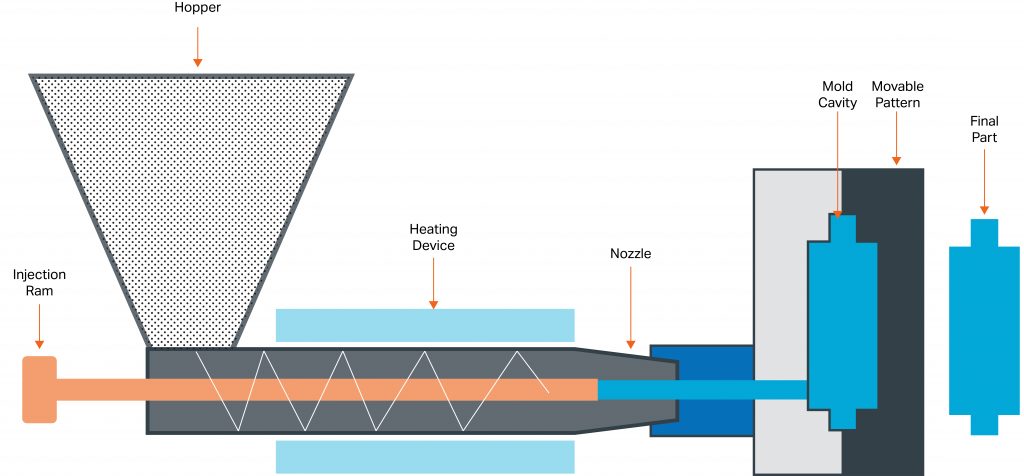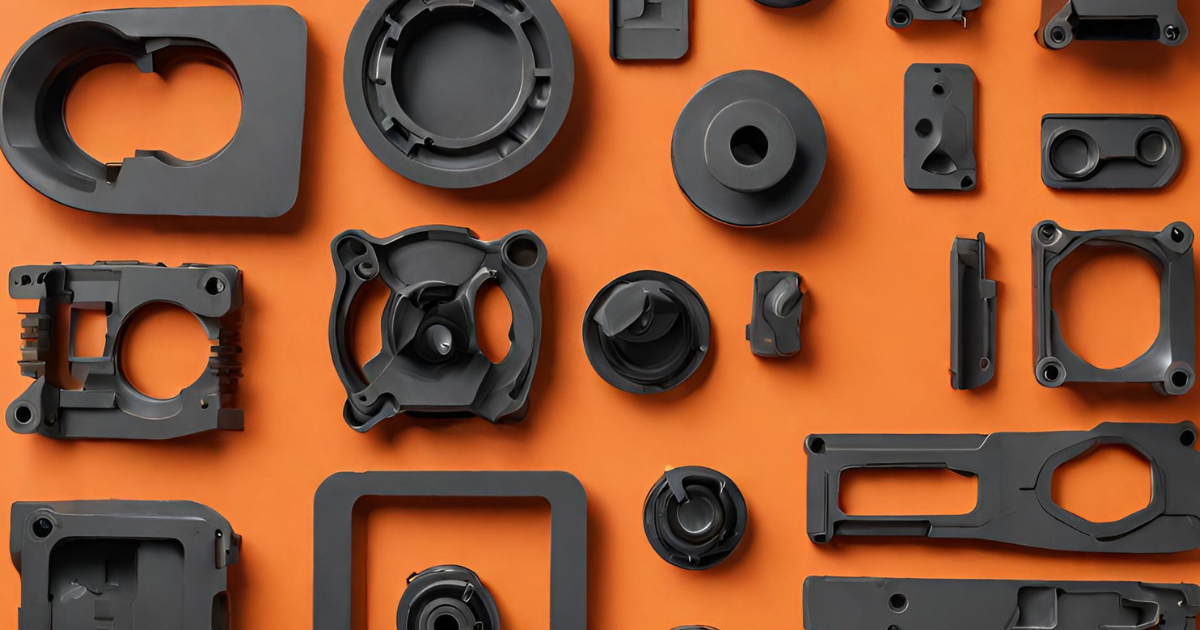In the realm of modern manufacturing, precision, and efficiency are the holy grails. One process that embodies these qualities is injection molding—a versatile technique that has revolutionized the production of a myriad of products across diverse industries. Let’s delve into the fascinating world of injection molding, exploring what it is, its intricate process, a glimpse into its vast applications, and the multitude of benefits it brings to the manufacturing table.
Understanding Injection Molding
Injection molding is a manufacturing process that involves injecting molten material, typically thermoplastics or thermosetting polymers, into a custom-designed mold to produce intricate parts and products. The process is highly automated and allows for the creation of complex shapes and designs with remarkable precision.
The Intricate Dance of Injection Molding
The injection molding process unfolds in a carefully orchestrated series of steps:
- Material Selection: The process begins with selecting the appropriate material for the desired part. Common materials include thermoplastics and thermosetting polymers.
- Material Melting: The chosen material is heated until it reaches a molten state within a heated barrel of an injection molding machine.
- Injection: The molten material is injected into a mold cavity through a nozzle, under high pressure. The mold is typically made of steel or aluminum and is designed to shape the material into the desired part.
- Cooling and Solidification: Once inside the mold, the molten material begins to cool and solidify, taking the shape of the mold.
- Ejection: After the material has cooled and solidified, the mold is opened, and the newly formed part is ejected from the mold cavity.
- Repeating the Cycle: The mold can be used repeatedly to produce multiple identical parts. The cycle of injecting, cooling, solidifying, and ejecting is repeated for each part.

Applications Galore
The versatility of injection molding is awe-inspiring, enabling its use across a wide spectrum of industries and applications. From automotive components and consumer goods to medical devices and packaging, injection molding caters to an array of needs. The process’s adaptability allows for the production of everything from intricate and small components to substantial and complex parts, making it an indispensable technique in modern manufacturing.
The Benefits of Injection Molding
- Precision and Intricacy: Injection molding allows for the creation of highly intricate and detailed parts with exceptional precision. The molds can be designed to exact specifications, resulting in accurate replication of complex geometries.
- Cost-Effective Mass Production: Injection molding is ideally suited for mass production, significantly reducing per-unit costs as production volumes increase. The speed and efficiency of the process ensure rapid manufacturing cycles, yielding a large quantity of high-quality parts.
- Versatility in Material Choice: The process accommodates a wide range of materials, allowing manufacturers to choose the best-suited material for the intended application. From durable engineering plastics to more flexible elastomers, the options are vast.
- Reduced Waste and Environmental Impact: The precision of injection molding minimizes material waste. Additionally, the possibility of reusing excess or scrap material further contributes to environmental sustainability.
- Improved Strength and Durability: The final products are often stronger and more durable due to the uniformity and density achieved through the injection molding process.
In conclusion, injection molding stands as a testament to human ingenuity, offering a solution that marries precision with efficiency. As technology advances and materials evolve, this manufacturing process will continue to play a pivotal role in shaping the products that define our modern world. Whether it’s the dashboard of your car or the casing of your smartphone, the odds are high that injection molding had a hand in its creation—meticulously molding the future, one piece at a time.
